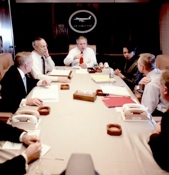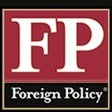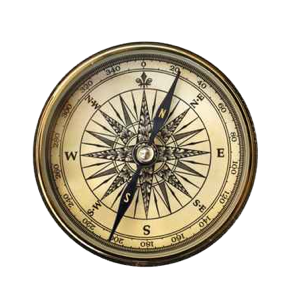


Chávez’s Covert War
Obama needs to call Venezuela’s president what he is: a terrorist and a drug-trafficker.
August 28, 2009
Ambassador Otto J. Reich
Venezuela's strongman Hugo Chávez recently warned that the "winds of war" were blowing in South America, and called on his military to "prepare for combat" against neighboring Colombia, a U.S. ally. Should we take his prediction seriously, or is this another cry of "wolf" by the loud lieutenant colonel? And how worried should be the American government be in either case?
An overt Venezuela-Colombia war is unlikely. To be sure, saber-rattling by someone who wears battle fatigues in public cannot be ignored. But Chávez's generals are in no mood to face the Colombians or anyone else. Corruption and politicization have weakened Venezuela's military, despite its acquisition of billions of dollars of Russian and other foreign weaponry. Plus, in his 10 years in power, Chávez has only ever pointed his guns at defenseless Venezuelan civilians. Bullies like him do not forewarn their intended victims. He does not fight openly, preferring to intervene covertly -- either directly or through his regional "anti-imperialist" alliance, the Bolivarian Alternative for the Americas (ALBA), a collection of the highest-decibel, lowest performing leaders in the region, from countries including Cuba, Bolivia, Nicaragua, Ecuador, and, until June, Honduras.
Honduras has been the most recent target of Chávez's subversion. There, he convinced a gullible follower, Manuel Zelaya, to retain his office through ALBA's so-far successful modus operandi: After reaching power democratically, change the rules, neutralizing the legislative and judicial systems so that no opposition leader can ever rise democratically again. Chávez has guided this strategy in Bolivia and Ecuador, and ALBA member Daniel Ortega is attempting the same in Nicaragua. Thankfully, however, Honduras's institutions of democracy -- the justice system and legislature -- proved too strong. The Supreme Court unanimously found Zelaya guilty of high crimes and ordered the military to remove him from office.
Losing Zelaya -- the first reversal in the drive to spread "21st Century Socialism" in the region -- has driven Chávez to near hysteria. He has repeatedly promised to "overthrow" the new Honduran president, Roberto Micheletti, who was constitutionally appointed to office by an overwhelming congressional vote. (All but three members of Zelaya's own party voted for Micheletti.) No Chávez soldiers have been spotted in Honduras, but there are reports that Venezuelan and Cuban intelligence operatives are fomenting violence in order to damage the government's image, a common tactic in Latin America.
In Colombia, Chávez cries wolf to disguise his concealed aggression, such as his support for the Revolutionary Armed Forces of Colombia (FARC), internationally condemned as a "narco-terrorist organization." The discovery of Venezuelan support for terrorists has routinely triggered Chávez's public tantrums. In March 2008, for example, Colombian Special Forces raided a FARC command and training camp situated more than a mile inside Ecuador. They captured laptops belonging to the FARC's second-in-command, Raul Reyes, who was killed in the assault. The computers revealed Chavez's long-standing financial, political, diplomatic, and military aid to the FARC. They documented Chávez's offer of $300 million for the FARC in Colombia and for other Marxist groups in Latin America, as well as collaboration with and political contributions to Ecuadorian President (and ALBA cheerleader) Rafael Correa, one of Chávez's most vocal allies. Correa and other leftist leaders condemned Colombia for its "violation of Ecuador's sovereignty" -- rather than denouncing the presence of a transnational terrorist camp, which must have existed with government acquiescence.
At that time, Chávez's hysteria reached a fever pitch. Chávez called Colombian President Álvaro Uribe "a criminal" and Colombia a "terrorist state," equating its aggressiveness with Israel's. On television, Chávez histrionically ordered his generals to "send 10 battalions of tanks" to the border, which he closed, stopping all trade. The measures soon had to be repealed lest they damage Venezuela's economy more than Colombia's.
Thus, the winds of war announced by Chávez last year did little lasting damage. Is this year any different?
The latest cause of Chávez's bellicosity is the announcement that Colombia will host U.S. advisors at some of its army, navy, and air bases. Chávez and his leftist chorus, including Argentina and Brazil, immediately accused Uribe of providing "military bases" for "an aggression by the empire against our region" (in the words of Bolivian President Evo Morales).
The United States has repeatedly stated that there are no military bases being established in Colombia. Nor are there plans for any. No additional U.S. forces are being sent. In fact, the number of American military and civilian advisors in Colombia has steadily declined over the past few years, and today totals less than a thousand. At the same time, the number of Cuban and other rogue-state advisors in Venezuela is reported to be many times that number.
The U.S. presence on Colombian soil is not a threat to regional peace -- quite the contrary. U.S. advisors have helped Colombia's security forces crush narcotics traffic and terrorism. Under Uribe, the number of Marxist guerrillas has been halved, from about 18,000 to 9,000. Right-wing paramilitaries have lost so many men (over 30,000 have surrendered) that they no longer exist as organized forces. And an official U.N. report credits Colombia's anti-narcotics programs for cutting coca cultivation and production by double digits in one year.
So why the cries of war? Because, once again, Chávez's ties to the illicit weapons and drugs pipelines have been exposed.
On August 3, the New York Times reported: "Venezuelan officials have continued to assist commanders of Colombia's largest rebel group, helping them arrange weapons deals in Venezuela and even obtain identity cards to move with ease on Venezuelan soil." The article adds that captured materials "point to detailed collaboration between the guerrillas and high-ranking military and intelligence officials in Mr. Chávez 's government as recently as several weeks ago."
A recent example illustrates Venezuela's brazen arms trafficking. When Colombia found Swedish-made anti-tank rocket launchers in FARC hands, the Swedish government asked Venezuela for an explanation. In the original sales agreement, Venezuela promised Stockholm that the weapons would not end up in the hands of terrorists -- but there they were. Chávez has refused to issue an official reply, saying in public only that the arms had been "stolen" from a Venezuelan military base.
Chávez's government is also deeply involved in drug trafficking. Last September, the U.S. Treasury Department designated three senior Venezuelan government officials as "Significant Foreign Narcotics Traffickers" under the Drug Kingpin Act. They charged Henry Rangel Silva, Ramon Rodriguez Chacin, and Hugo Armando Carvajal with "materially assisting the narcotics trafficking activities of the FARC."
In equivalent positions in the United States, these individuals would be director of the FBI and CIA, director of the Defense Intelligence Agency, and U.S. attorney general and secretary of homeland security. Does anyone really think these men act without Chávez's knowledge and protection? Not surprisingly, in July, the non-partisan U.S. General Accountability Office reported that "Venezuela has extended a lifeline to Colombian illegal armed groups by providing significant support and safe haven along the border. As a result, these groups, which traffic in illicit drugs, remain viable threats to Colombian security."
But Colombia is far from the only target. The United States is the principal market for Colombia's illicit drug industry, of which Chávez's allies in FARC control 60 percent of production. Clearly, an undeclared war is already underway between Hugo Chávez's government and the United States and Colombia.
Faced with this and much more damning evidence, some still classified, of Chávez's covert war, what should the U.S. response be? First, call Chávez what he is: a supporter of drug trafficking and terrorism. Second, designate Venezuela as an official state sponsor of terrorism. The National Security Council has made this recommendation since 2003. Some U.S. officials, well-meaning but misguided, feel that diplomacy alone will convince Chávez to change his ways. It has not and will not. Third, end the self-defeating U.S. dependence on the Venezuelan oil that finances Chavez's anti-democratic and anti-American aggression. The United States can find new sources for 8 percent of its imports much more quickly than Venezuela can find an alternate market for 72 percent of its exports.
Some may say this last response is "disproportionate" or "confrontational." They should try saying that to the mother of the American child who died of a drug overdose, the wife of the U.S. policeman murdered by traffickers, or the orphan of the Colombian soldier killed by weapons provided by Hugo Chávez. Such a non-belligerent reaction by the United States, whose national security is under attack, is fully justified.
— Otto J. Reich served President Bush from 2001 to 2004, first as assistant secretary of state for the Western Hemisphere and later in the National Security Council. He now heads his own international government-relations firm in Washington.



P: +1. 202.333.1360

